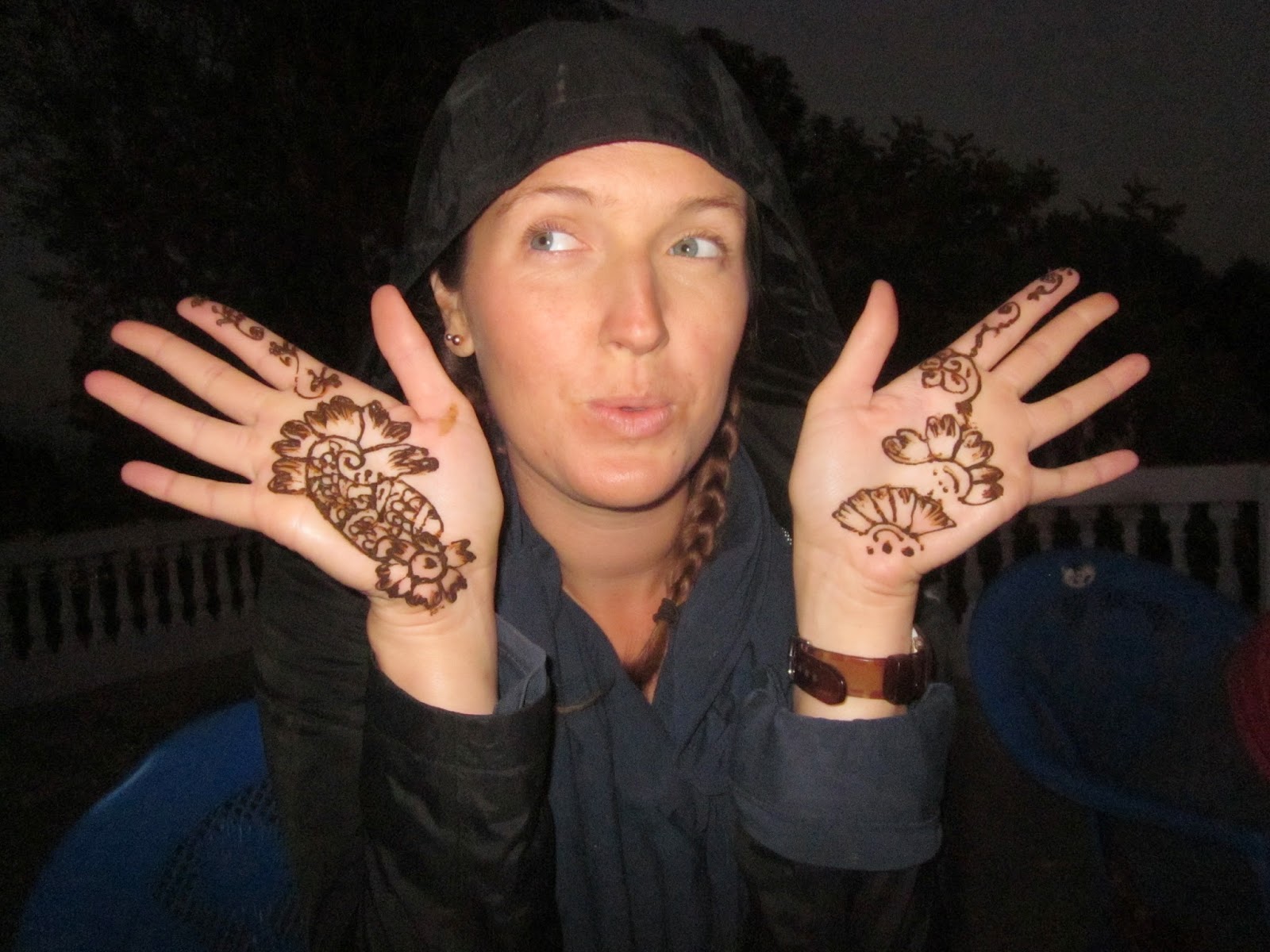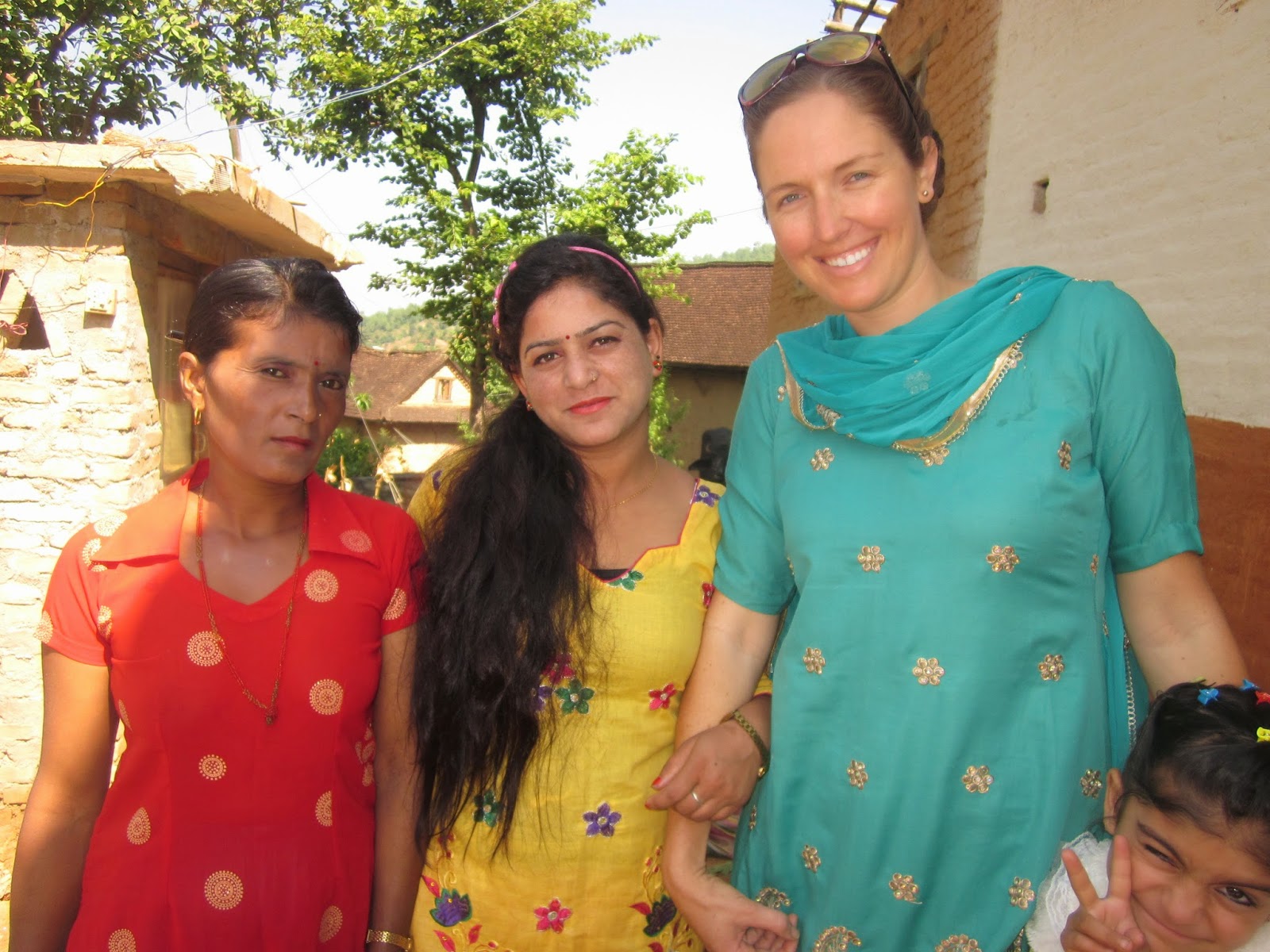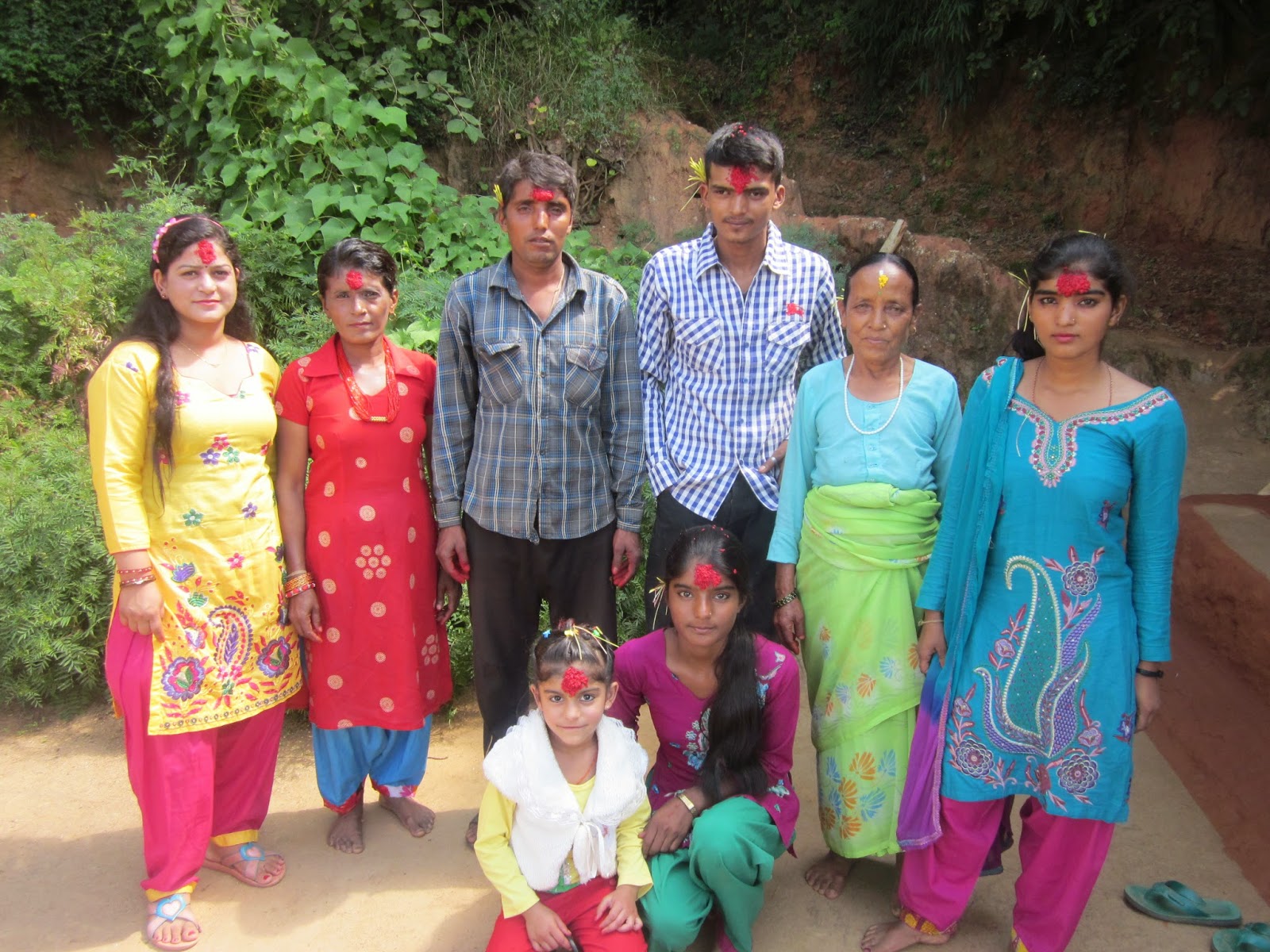As we started heading down the hill towards my site I glued my face to the jeep window trying to take in everything around me. Everything that would be my home for the next two years. For a moment I imagined myself in my future body, returning to the site after many years away. What would that feel like? Would I be welcomed with open arms? Would they remember my name? Will projects that I start now still be in place? What will I have missed the most?
The jeep made a first stop at the Health Post. Many of the staff was there and I was greeted with smiles and “Namaste”s. Some of them even spoke a little bit of English. Then it was off to my house to meet my family. After about a 5 minute drive we arrived at the house which was right off the main road. My family was all there, save my dad who would join us shortly. I was tired from the day’s travel and my GI system wasn’t at it’s best so I was a little short of words, but I was happy to be “home” and to be meeting my family.
They greeted me with Mala (which is a string of flowers that is placed around your neck) and Tika (the red rice mixture applied to the forehead). My counterpart was greeted too and stayed for the introduction. I continuously feel lucky to have such a caring, invested, loyal counterpart who is truly dedicated to introcuding me to the community and teaching them about what I am here to do. One of his introductions was to a group of political leaders and lasted a good 20-30 minutes. He talked all about Peace Corps and what my role was in the community.
These first few months I am mainly focusing on just that…discovering my role in the community. So far my typical day is the following:
These first few months I am mainly focusing on just that…discovering my role in the community. So far my typical day is the following:
7am: Wake up to one of my siblings bringing me tea. After tea…go for a run, do yoga, practice language.
9am: Morning Daal Bhaat with the family (lentils, or beans and rice)
10am: Meet my counterpart at the Health Post and chat with the staff.
10-4pm: Observe the activities of the Health Post and practice my language. The Health Post recieves around 20 patients a day and the staff dispenses medications. Common illnesses they see and treat are the common cold, stomach pain, fever, cough, tuberculosis, and more. They also do health checks on pregnant women and women with children under five. All services are free and pregnant women and women with young children get a small amount of money from the government for getting checked and for giving birth at the Health Post.
4-6:30pm: Have tea and snack with friends. Head home.
6:30pm: Evening Daal Bhaat with family. Listen to my family converse and attempt to understand some of what they are saying. Talk about my day.
8pm: Head to my room.
9pm: Go to bed.
Every day is an adventure here in Nepal and I never really know what to expect when I step outside my room. About two weeks into my service one of my friends from the Health Post announced that she was getting married and wanted to know if I would like to come. I was honored that she invited me and also that she trusted me with her secret as she had not told the other staff members that she was getting married.
The next week I packed my stuff and took a bus with her cousin to her house. It was about 6 hours away by bus. When we arrived, we were greeted with tea and snacks and shown to our room. Staying at her house was really neat as I got to see all the preparation the day before. Her family was playing music and putting up decorations as we sat up on the roof and got our hands decorated with mhindi (henna).
Later that night people began dancing and after little persuasion, I joined the group. After all, I did bring my light up hula hoop for the occasion! I enjoyed dancing to the music as it was more similar to club music than the typical Nepali music played in busses, homes, and festivals. At first I decided to offer the hula hoop to the group to see if they had used a hula hoop before. Some of them recognized what it was, but did not know what to call it. After saying “hula hoop” multiple times and getting blank, confused looks they eventually decided to call it a “pipe”. One gentleman took the “pipe” and spun it wildly above his head as I shielded my eyes and backed away. A few others were able to spin it a few times around themselves. Then they offered it to me and I did my usual routine of spins and twirls. It was great fun and I was asked continuously throughout the night to repeat my performance.
The next day began with more preparation as different rooms were set up for the occasion. After my friend was dressed in the traditional attire, she was seated in one of the prayer rooms and her family members came to visit her and wash her feet. Later, the groom arrived in a car behind a large procession that included a band and about 75 family members. Everyone was dancing as white foam was sprayed into the air landing on everyone like snow. After the procession, my friend came out of the house and exchanged rings with her new husband. Then, they parted and more prayer ceremonies commenced. Finally, the ceremonies ended with the bride and groom sitting outside, physically tied together by a yellow fabric that symbolized their bond.
It was a very colorful, emotion filled day as the bride does not return to her family’s house after the wedding accept for holidays. Most marriages in the area where I live are arranged. Sometimes the bride and groom meet for the first time on the wedding day. Although my friend’s marriage was arranged, she had met him before hand and had approved the arrangement. After a few weeks, her husband would leave to Korea for his job. He plans to be there for 5 years. My friend said that during that time she plans to still live in my village and work at the Health Post. Although I am happy that she won’t be moving, I can’t imagine how difficult it will be for her to be away for so long from her husband. She was happy though and I could tell that she was comfortable with the arrangement.
In the same jovial, parade like fashion that the day started, my friend and her husband drove off in the get away car. However, unlike American weddings where the bride and groom speed away, the car was slowed to a snail pace once again by surrounding family and friends all dancing and singing.
“This month is a good month to get married”. I was told by many people at the wedding.
“Why is that?” I asked. “Because of the weather?”
“Yes, that and it’s just a good time.”
“Are you married?” They ask.
“No.” I explain. Expecting the question to pop up at some point.
“People in America usually get married a little later in life.”
That is usually my way of dodging their concerned looks that I have not been married at this point in life. It’s a popular topic of conversation and I handle it a little differently every time. I usually say that after 2 years, when the Peace Corps is over I plan to get married. Then they smile, and all is well with the world.






































